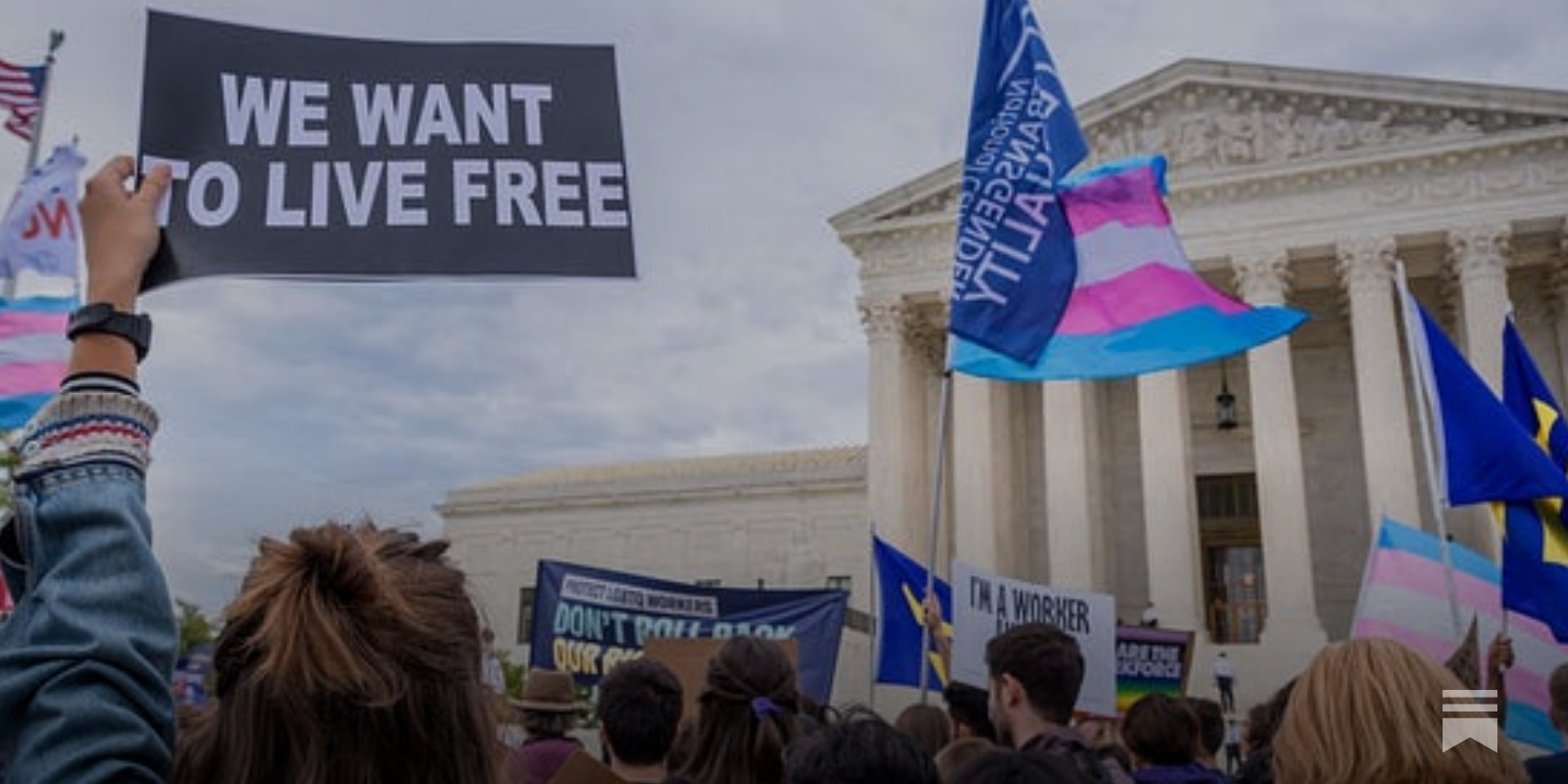
Last week, we talked to in-house messaging guru Anat Shenker-Osorio about how important it is to expand fights for justice so they encompass not just the concerns of one group, but those of the entire community — a process she calls “de-siloing.”
After our discussion about how such a shift had transformed the fight for abortion rights, we asked her about what other issues needed de-siloing. What immediately came to mind was the battle for transgender rights and against renewed hostility from the right toward LBGTQ+ rights overall.
As Anat told us last time, if you let the opposition define your issue as belonging to a small group — or, even worse, play along by using language that accepts that premise — you set yourself up to be ignored.
But in the fight for the rights of transgender Americans, the rhetorical struggle has been even harder — it’s not just that trans demands have been relegated to a small niche group, but trans folks themselves have been separated from the community: scapegoated, threatened with erasure, or portrayed as helpless victims in need of protection by parents, schools, or the state. And some early efforts to help leaned heavily on rhetoric about “protection” that left openings for more attacks from the right.
In this week’s column, Anat tells us about the research her team has done on changing the conversation to focus on the bravery and strength of trans kids and adults, and about how to open up gender issues to encompass the rights and values that all Americans (that includes older white cis guys) see as their own, and as very much worth fighting for.
Want to hear more about Anat’s work? Check out the third season of Words to Win By, her excellent podcast exploring political messaging in the fight for change. Episode 6 (the season finale) premieres on February 20.

It seems like only a few years ago there was growing consensus on LGBTQ+ rights. What happened?
It makes me sad to say this, because I think the issue had been de-siloed and we allowed it to get re-siloed. They used trans — the T — as the tail to wag the dog.
Marriage equality, by the way, is a perfect example of de-siloing. The story about gay marriage used to be, “Well, we should feel really sad for these particular people because they don’t have this right and here’s why Bob and Jerry or Lisa and Cindy deserve this right.”
But success was all about shifting the argument from ensuring that those people can have their thing to marriage equality. Love is love. Love makes a family. That’s a universalizing message. I’m a straight lady, married to a man and I also believe that love is love. I also feel that my relationship is made out of love and it’s made out of making a family.
And that ties me to other people whose relationships are very different to mine for whatever reasons. Understanding that we share something in common.
I think that now what’s happened is that trans folks have absolutely been siloed and that is the right wing’s doing. It’s part of the tactic: In order to scapegoat someone effectively, you have to separate them from the herd. The biblical story will tell you the precondition for scapegoating is you have to separate the goat from the herd in order to be able to go and slaughter them. Sorry to get very graphic.
On trans issues where I think we get tripped up a lot is that it is something with which a lot of people are less familiar, it’s sort of less known to them. But keep in mind that abortion took a long time to get here. We don’t remember that gay and lesbian folks took a long time to get here, too. Once upon a time, pre-Harvey Milk for example, a lot of straight people were like, “What is that? I don’t know anything about that kind of thing.”
As we saw with abortion, anytime we exceptionalize an issue, we are left in this very vulnerable place where the only people for whom this issue has saliency are the people who view themselves as directly impacted. And that’s true whether people are right or wrong about that.
So how do we change the terms to get this argument about rights out of the silo?



